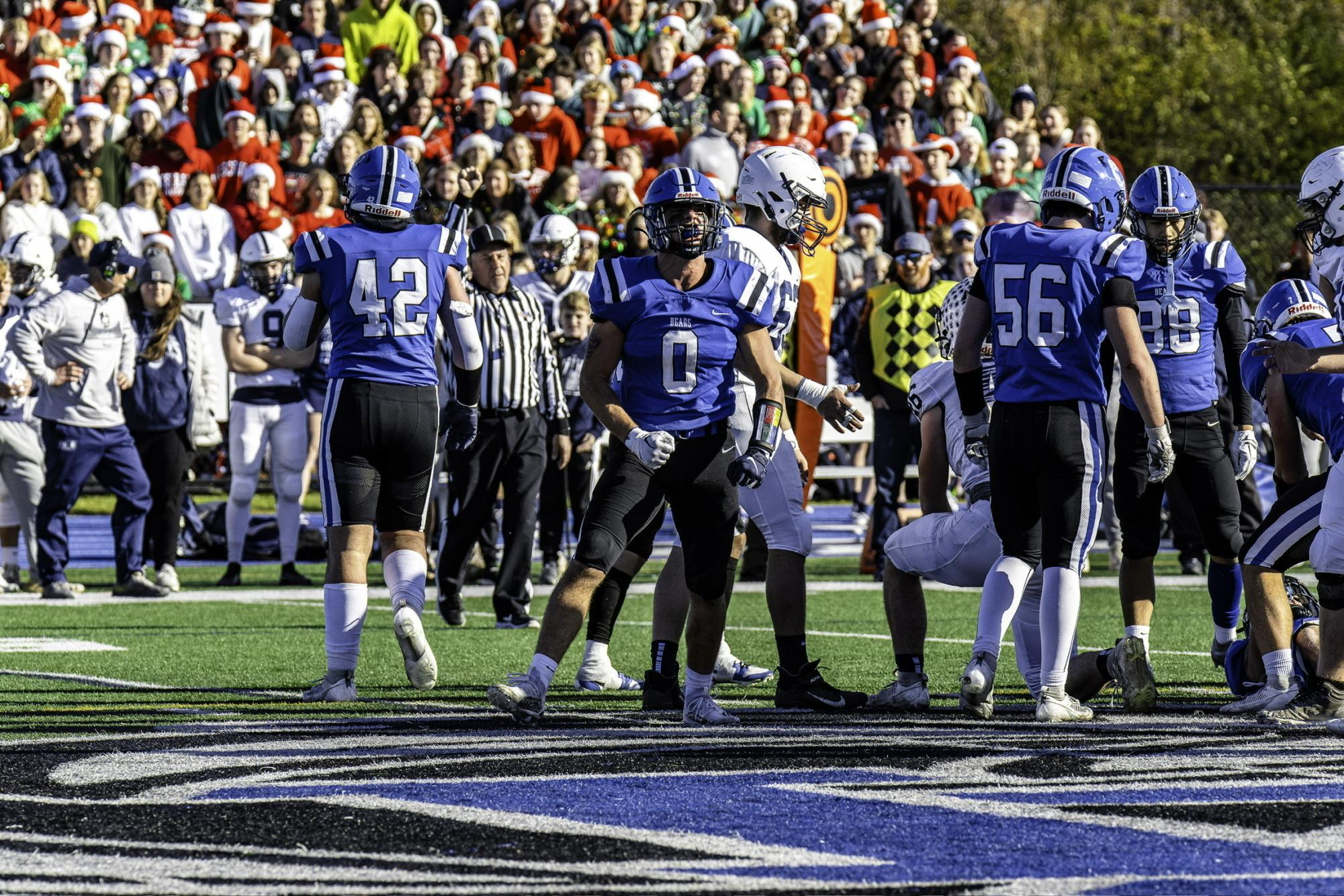Around 82% of athletes face pressure from participating in a sport according to a January Bear Facts Student Media survey of 243 students. Athletic pressure can stem from audiences, coaches, internal expectations and many other factors.
For Taylor Eckland, senior and golfer, this pressure is a result of her paying too much attention to the score and overthinking.
“I get in my head,” Eckland said. “It’s so easy to be able to count your score because it’s just simple math. So, if I’m really in my head I know my score [and] it just makes me much more stressed.”
Rather than overthinking, Ella Sands, junior and poms dancer, says the pressure she faces is a result of other stressors such as the idea of having only one shot at perfection.
“We get one chance and this defines how we place [in] that specific competition,” Sands said. “I think having one chance at competitions is scary because we have to do our best for that one.”
Coach’s expectations can also lead to pressure. Courtney May, boys’ cross country coach, says that sometimes this pressure is necessary.
“I wouldn’t say that we put an undue amount of pressure on any individual athlete,” May said. “We always say [that] we want you to do your best. I would say we put the right amount [of pressure on each athlete] at the right time.”
Aside from coach’s expectations, crowds can also contribute to building pressure. However, Sands says she prefers a larger audience, which she encounters often as the poms team performs in front of the whole school.
“I like big audiences better because I feel like everyone’s cheering more. Everyone’s eyes are on you, but it’s not like you can see each individual person,” Sands said. “I feel like with a smaller audience, that’s more pressure because they can see every little thing. But, when you get in front of a bigger audience, it’s less pressure because everyone’s watching us but everyone’s enjoying the performance instead of critiquing everything.”
While pressure can lead to increased fear and anxiety, Sands says it can also aid performance.
“I think the pressure enhances how we perform,” Sands said. “We let it drive us. We’re reaching for a goal and looking to improve and continue throughout our season and that pressure just kind of [motivates us.]”
Pressure is not only used as motivation on the dance floor. Lincoln Adams, senior and football player, thinks pressure also enhances his games.
“For me personally, I would say [pressure] helps me because it gets me more amped up and gives me more energy for each play,” Adams said.
Although Adams says he reacts well to pressure overall, sometimes he needs to take a moment to cope, especially during the high stakes moments in football where fans scrutinize each play.
“I like meditating every now and then,” Adams said. “I would just take a second if I have time to reflect or just stop thinking and relax for a second. [I would] take a deep breath, then remember what I prepared for and what I have to do.”
Similarly, Eckland says it is important to stay grounded in order to combat the pressure.
“I used to face a lot of pressure because I was taking it really competitively. It can be really easy to compare yourself to other girls because we have a lot of really good teams in our conference,” Eckland said. “But over time, you [have to] let it go.”
Athletes across all sports face different amounts of pressure that can help or hinder their performance. This pressure becomes a force that athletes should consider in order to reach success.


